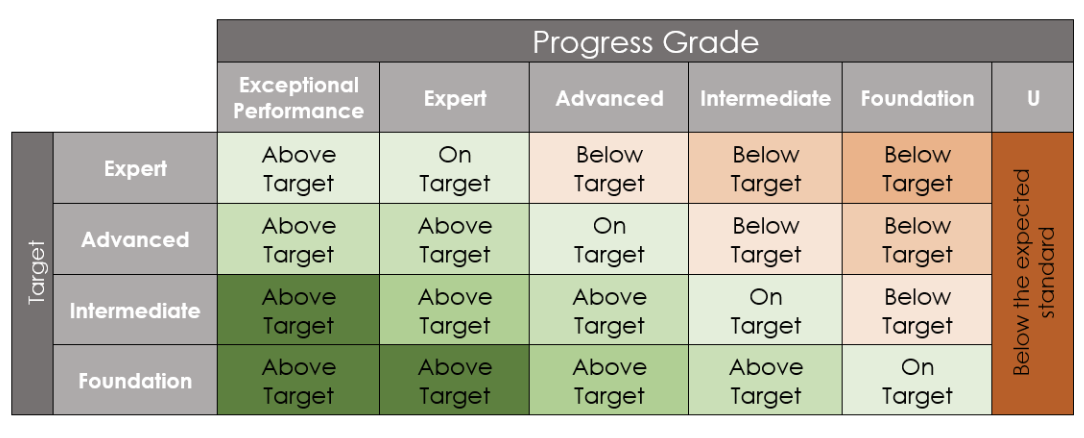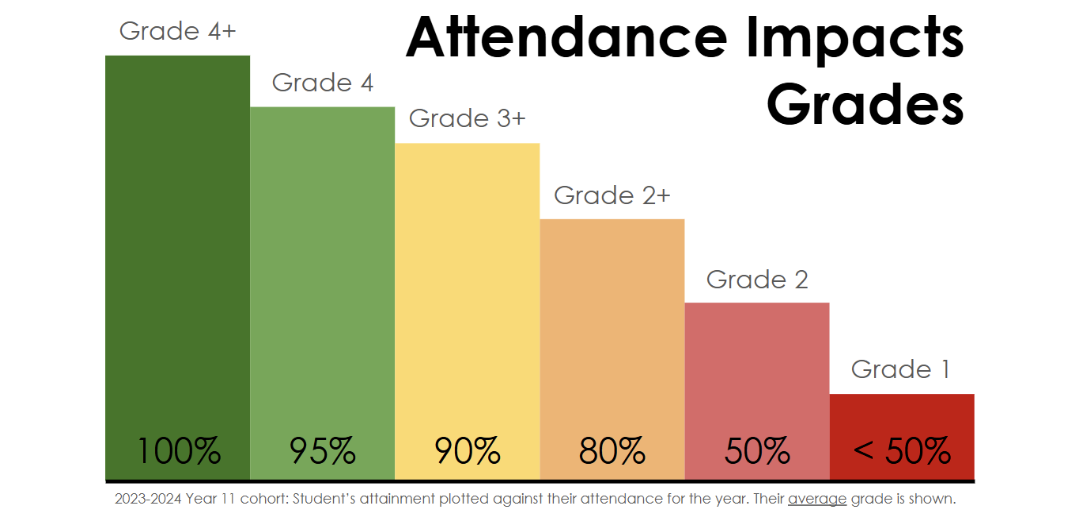
Progress Reports
Students in year 7 to 11 receive three Progress Reports per academic year.
Key Stage 3
Key Stage 3 Progress Reports show parents how their child has performed in the most recent subject assessments and provide an Effort grade and a Homework grade for each subject.
Performance in Key Stage 3 is provided as a Measure of Achievement:
| Exceptional Performance |
Your child’s performance in this subject is within the top 2-3% of grades compared to the rest of the Year group |
| Expert |
Your child’s performance in this subject is within the next 32-33% of grades compared to the rest of the Year group |
| Advanced |
Your child’s performance in this subject is within the next 20% of grades compared to the rest of the Year group |
| Intermediate |
Your child’s performance in this subject is within the next 30% of grades compared to the rest of the Year group |
| Foundation |
Your child’s performance in this subject is within the next 15% of grades compared to the rest of the Year group |
Students are given a Target Grade at the beginning of Year 7. A student’s Target Grade is compared to his or her Measure of Achievement to determine whether he or she is above, below or on target in that subject.
In the example below, the student performed on Target in Term 2, below Target in Term 4 and above Target in Term 6.
Target: Advanced
| TERM 2 | TERM 4 | TERM 6 | |
| Progress Grade | Advanced | Intermediate | Expert |
| Effort | Outstanding | Good | Outstanding |
| Homework | Good | Good | Outstanding |
The table below should help you to determine if your child is making good progress.

Effort and homework are awarded as Outstanding, Good, Requires Improvement or Poor. All students should aim for Outstanding or Good by working hard, bringing the correct equipment and completing homework on time.
If you have a question regarding the information in your child’s Key Stage 3 Progress Report, please complete our short survey by following this link.
Key Stage 4
Key Stage 4 Progress Reports show how we expect your child to perform in his or her GCSE exams at the end of Year 11.
When a progress report follows a mock exam series, that report will also show how your child performed in the exams.
In the Predicted Grade column in the example below, you can see that this child is predicted just below GCSE Grade 7 in English, close to a Grade 6 in mathematics, between a Grade 4 and a Grade 5 in biology, etc.

How does Attendance affect Progress?
In Year 9 in 2024-2025, students with excellent attendance achieved above their Target Grades in 5 out of 13 subjects and on target in 7 out of 13 subjects.
Students with attendance below 90% achieved above their Target Grades in just 2 out of 13 subjects and below in 6 out of 13 subjects.
The evidence is clear - better attendance leads to better GCSE performance.

The graph above is real data taken from Year 11 results at The Sittingbourne School.
As you can see, pupils with above 95% attendance leave with higher average grades than those with lower attendance, allowing them a broader choice of opportunities Post 16.
